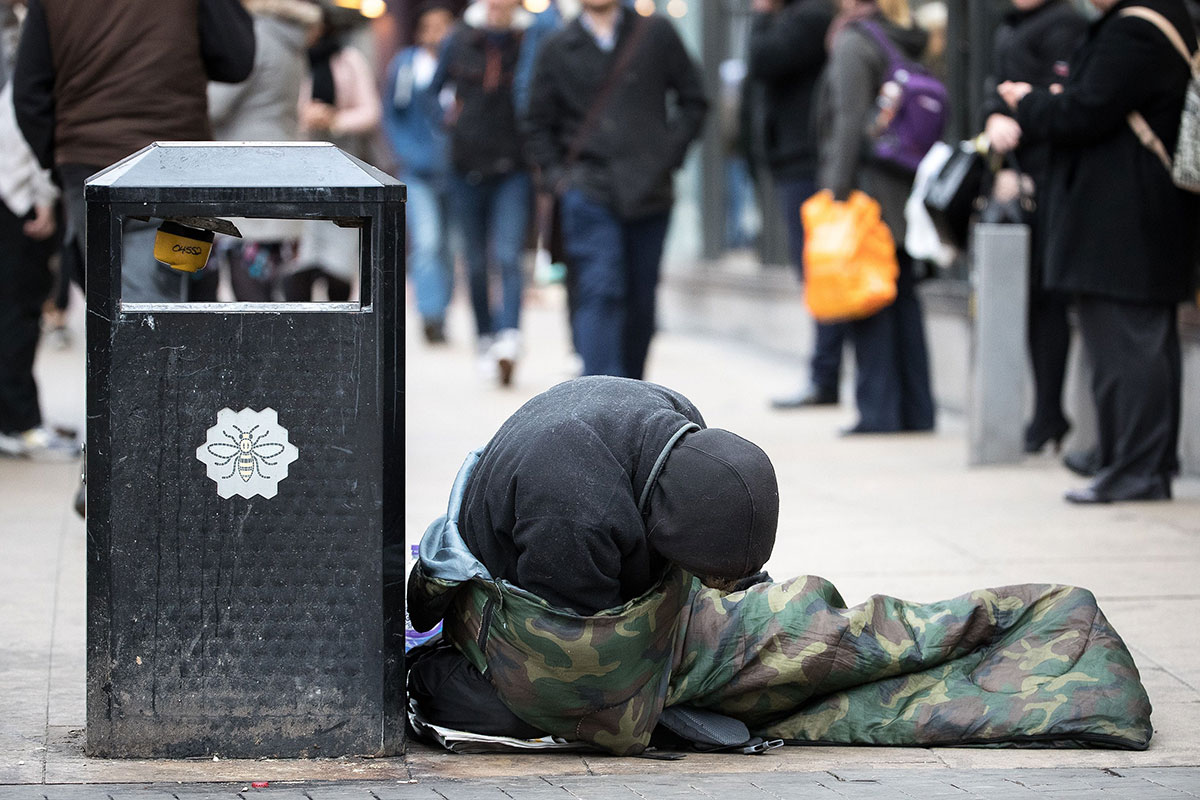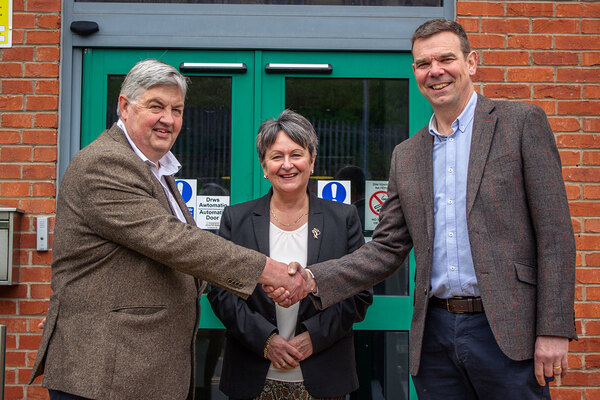You are viewing 1 of your 1 free articles

We have reduced rough sleeping – but there is much more to do
A Social Impact Bond, collaboration and Housing First have helped to reduce the numbers sleeping rough on Greater Manchester’s streets, but more is needed from the government, writes Dave Power
At the end of January, the Greater Manchester Combined Authority (GMCA) announced that the total number of people sleeping rough in the 10 boroughs across Greater Manchester has fallen for the first time in eight years.
Across Greater Manchester there has been a 10% decrease in rough sleepers in 12 months, with numbers stabilising or falling in eight boroughs, and increasing in just two.
Tackling homelessness is a mayoral priority, and Andy Burnham’s A Bed Every Night scheme, which enlists the support of faith and community venues to offer temporary accommodation for rough sleepers, has contributed to the reduction in numbers.
A major contributor to reducing rough sleeping is the Social Impact Bond commissioned by the GMCA and funded by the Ministry of Housing, Communities and Local Government.
The Social Impact Bond is being delivered by the Greater Manchester Homes Partnership – a consortium put together by One Manchester, Trafford Housing Trust and Bridges Fund Management – in collaboration with Great Places, Shelter and The Brick. It is underwritten by 338 pledges of accommodation made collectively by Greater Manchester Housing Providers.
“The major contributor to reducing rough sleeping is the Social Impact Bond”
The project supports rough sleepers into long-term, sustainable tenancies, while providing person-centred and intensive support around mental health, alcohol and drugs, and employment.
To date, the GM Homes Partnership has supported 246 people into their own homes, a feat that we’re incredibly proud of as the initial target was 200 over three years.
However, while these newly released figures are of course welcome, the number of people documented as sleeping outdoors in November 2018 is highly regarded as an underestimation, and despite the fantastic efforts of multiple initiatives, there is still much work to be done.
So what’s required to overcome the need for rough sleeping? Alongside partnership working and moving away from traditional support processes, government investment in prevention is imperative.
The government pledged £100m in August 2018 to end rough sleeping by 2027, with an aim of supporting up to 6,000 vulnerable people with comprehensive support and housing. A total of £8m of this money was earmarked for Greater Manchester, to fund the Housing First pilot in our region.
The GM Homes Partnership took on the principles of Housing First, with access to stable homes, incorporating the personalised, intensive support approach.
“What is needed from the government to sustain this success is more collaboration and investment in prevention, addressing welfare reform issues and improving access to the private rented sector”
We focus on an individual’s assets and strengths, using a personalised fund to realise their individual ambitions and aspirations. The partnership invests in a second, third, fourth chance ethos, so it doesn’t matter how many times it takes for a participant to stabilise and move forward.
But what is needed from the government to sustain this success is more collaboration and investment in prevention, addressing welfare reform issues and improving access to the private rented sector.
Universal Credit remains the fundamental barrier to accessing or sustaining financial stability, with procedural mistakes leaving participants in debt and placing their accommodation in jeopardy. Variation to the process is required for vulnerable and complex individuals to prevent ongoing crisis.
A key to the success of the project has been the collaboration across multiple public service organisations, including justice and mental health services.
“We focus on an individual’s assets and strengths, using a personalised fund to realise their individual ambitions and aspirations”
This means that at every systemic touch point outside housing, participants are supported and we’re able to sustain engagement with those at risk throughout their journey with us.
The pledge to end the need for rough sleeping is a challenging one, and although the government’s deadline of 2027 may come and go, by learning from our experience, personalising our service to each individual and ensuring that we create and maintain relationships in Greater Manchester, we facilitate the end of rough sleeping together in a partnership that works to deliver a result for rough sleepers – homes and sustained support that works for them.
Dave Power, chief executive, One Manchester
Housing First: The seven key principles
- People have a right to a home so Housing First prioritises access to housing as quickly as possible without any conditions other than the willingness to maintain a tenancy. Individuals won’t lose the tenancy if they disengage from or no longer require support.
- Flexible support is provided for as long as it is needed with housing providers committing to long-term, flexible support without a fixed end date.
- The housing and support are separate – so housing is not conditional on engaging with the support. The offer of support remains if the tenancy fails.
- Individuals have choice and control. They have the choice, where possible, about where they live. Accommodation should be pepper-potted and self-contained, unless an individual says they would prefer shared housing.
- Active engagement. Staff proactively engage clients and caseloads are small. Support provided as long as clients need it.
- The service supports people to identify their strengths and goals and to develop skills and knowledge to achieve them.
- A harm reduction approach is used – so individuals who, for example, self-harm are supported to undertake practices which minimise the risk of them self-harming.
Source: Housing First England
Cathy at 50 campaign
Our Cathy at 50 campaign calls on councils to explore Housing First as a default option for long-term rough sleepers and commission Housing First schemes, housing associations to identify additional stock for Housing First schemes and government to support five Housing First projects, collect evidence and distribute best practice.
Homelessness Reduction Act
New legislation requiring councils to prevent people becoming homeless will come into force in April.
There is no doubt that this government is under substantial pressure over homelessness – towards the end of 2017, figures revealed the overall number of homeless households has risen 65% since 2010 and the Public Accounts Committee branded ministers’ efforts to tackle it “unacceptably complacent”.
This new legislation is supposed to turn the tide and has been welcomed by experts, but funding is a sticking point.
Councils have warned that the £72m to cover the costs is woefully inadequate, especially in areas of high demand. If things start to go wrong, expect a battle over who is to blame.












